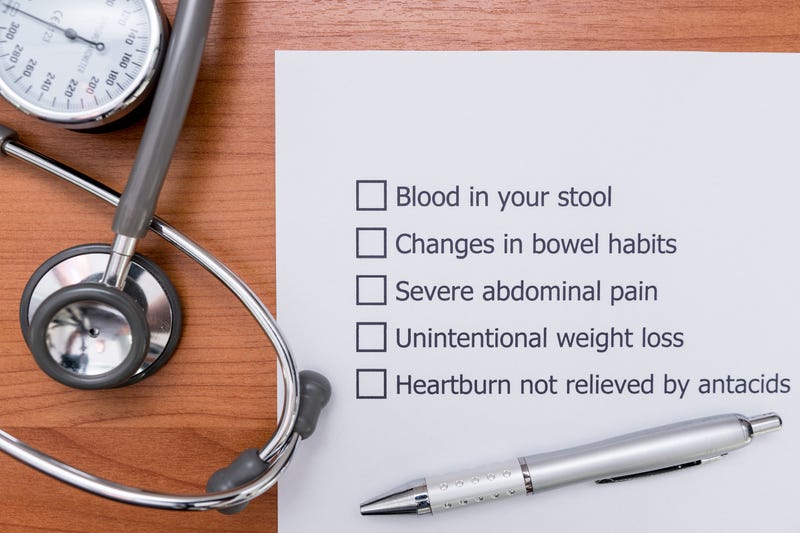
PHILADELPHIA (KYW Newsradio) — New data from the American Cancer Society show that colorectal cancer, also known as colon cancer, is increasing among younger people and swiftly shifting to more advanced disease.
The study found that cases of those with colorectal cancer, a disease, according to the CDC, in which cells in the colon “grow out of control,” in ages 55 and under nearly doubled from 11% in 1995 to 20% in 2019.
Dr. Arif Kamal, chief patient officer at the American Cancer Society, believes this change is related to low rates of colon cancer screenings, as well as some potential lifestyle changes related to obesity, alcohol intake and consumption of red meat and processed foods that are starting to catch up with people.
In Pennsylvania, it is the second leading cause of cancer-related deaths behind lung cancer. Cases are highest in people who are Alaska Native, American Indian or Black.
Kamal says, like many cancers, the very early stages are not really detectable so, when screening, the purpose is to find it when there are no symptoms.
“Once you have symptoms, it's largely because it spread outside the colon and becomes much harder to cure at that point, so it's really important to find it before any symptoms occur,” he explained.
“If people do experience blood in their stool – particularly, if it changes to a darker color, or being constipated suddenly or feeling a lot of abdominal pain – those are symptoms to bring up to their clinical team.”
He says screenings are also important because colorectal cancer doesn’t pop up overnight. “That transition really takes years of progression over time.”
Which is why Kamal said they do colonoscopies every 10 years, because if they find anything slightly abnormal, they take it out and need another 10 years before something bad shows up again.
Kamal realizes, however, that the basic fundamental amount of trust in the healthcare system needs to be met and acknowledged before “people kind of go down this path,” he said.
Rick Rivers, a 41-year-old colorectal cancer survivor, agrees.
The father of three boys from West Philadelphia says trust is still a factor today, as many African Americans still struggle with the horrific medical experiments of the past.
“And it's just hard to weave through, you know, the misinformation and the horror stories and the actual proof and evidence that this is good, this is beneficial, this will save your life,” Rivers said.
He added that, along with the trust issue, it is the stigma that must be fought.
“It could be anything from, you know, the actual process of getting a colonoscopy and the imagery of that. It could be just the fear of getting that bad news and what that could mean and how impactful and maybe devastating and shocking it to be. I mean, there's so many different factors as to why we don't want to have that conversation, but it is imperative that we do.”
Rivers was diagnosed when he was just 31, and only learned that his grandfather died of colon cancer during his diagnosis, as it wasn’t a topic of discussion in his family.
“The big things that were talked about were diabetes, heart disease, hypertension, stuff like that, but not really cancers. I didn't really hear anything about those.”
Rivers says, unlike when he was growing up, cancer is a normal discussion in his home. He also battles kidney cancer and his wife is fighting breast cancer.
“My boys have seen me go through all of the stuff I've gone through. It's commonplace in my house to talk about cancer or going to the doctors or medical tests,” he said.
Kamal says everyone is able to reduce their risk of colorectal cancer by cutting back on alcohol intake, not smoking, eating healthy and exercising, along with making sure screenings are scheduled starting at age 45 or earlier if there’s family history.
The Centers for Disease Control and Prevention recommends regular screenings for colorectal cancer beginning at age 45.
More information on colorectal cancer can be found on the American Cancer Society’s website.



